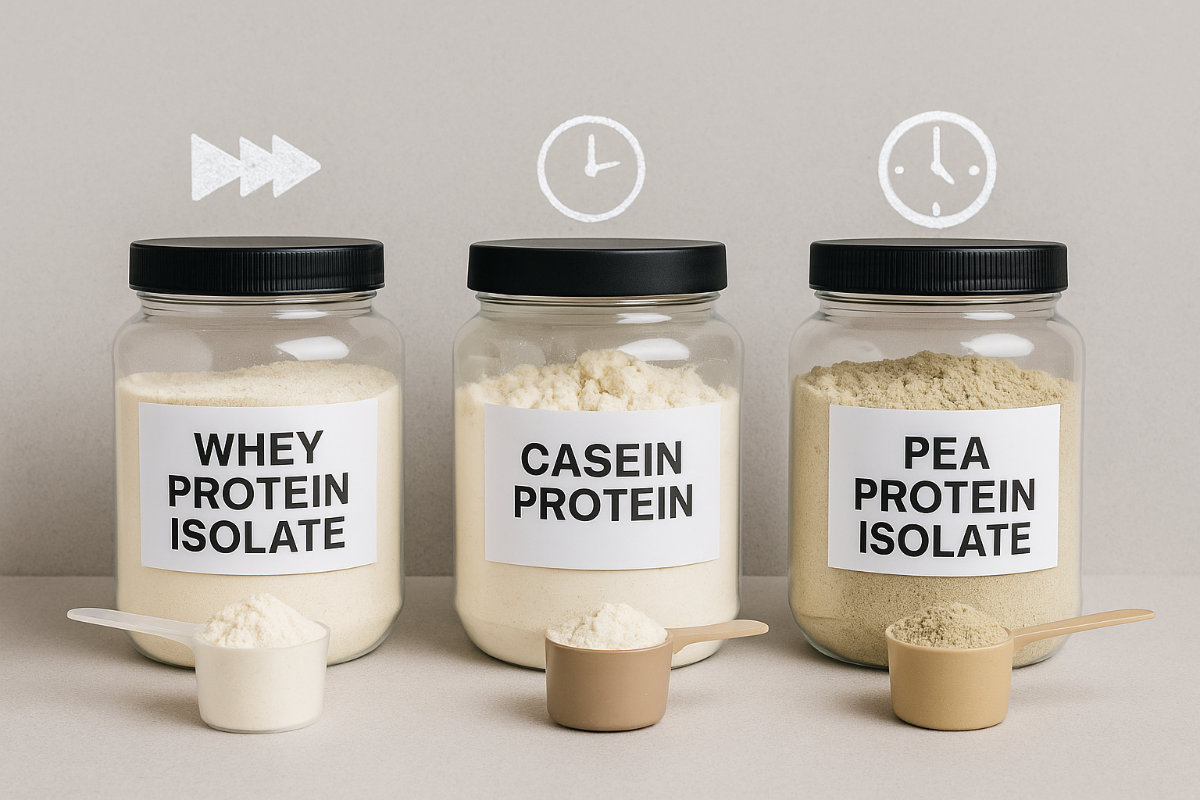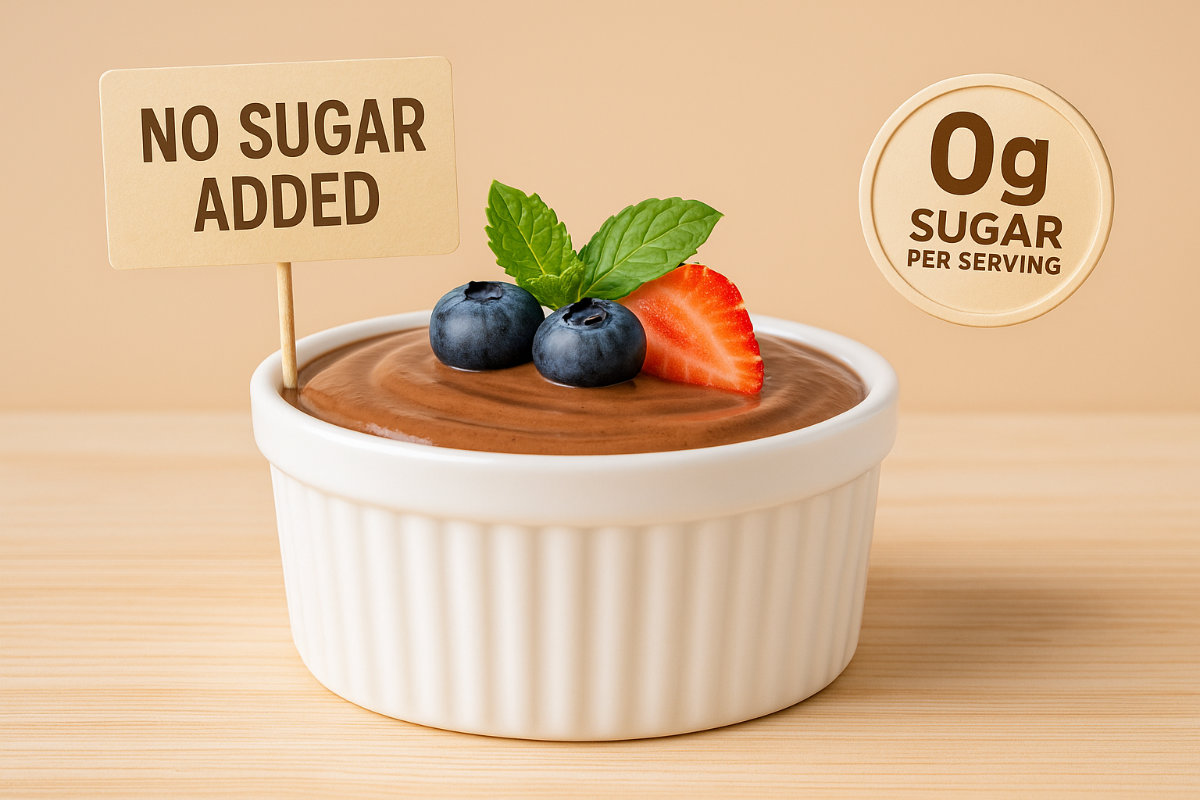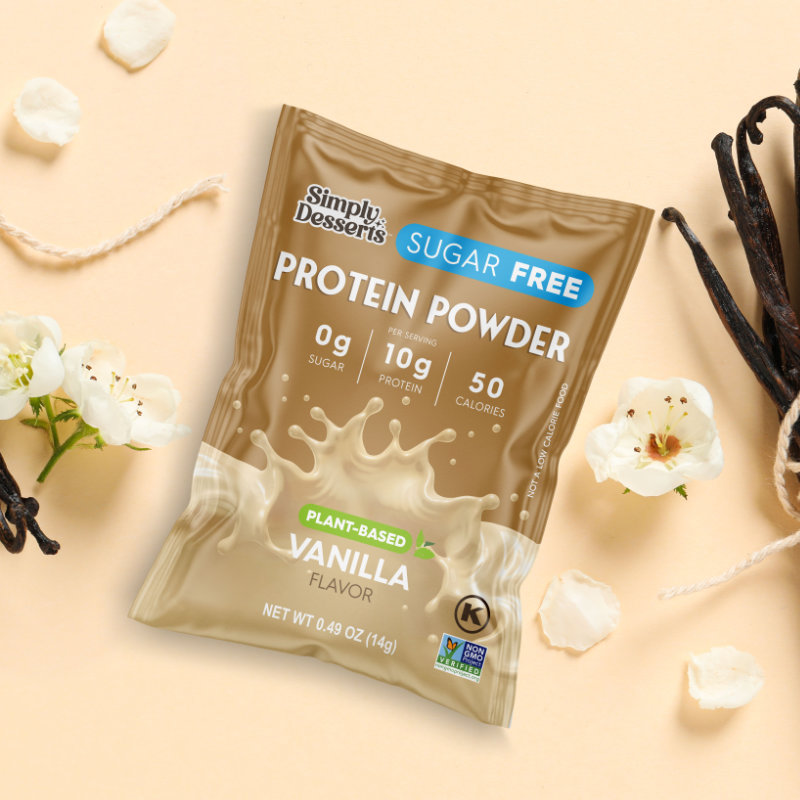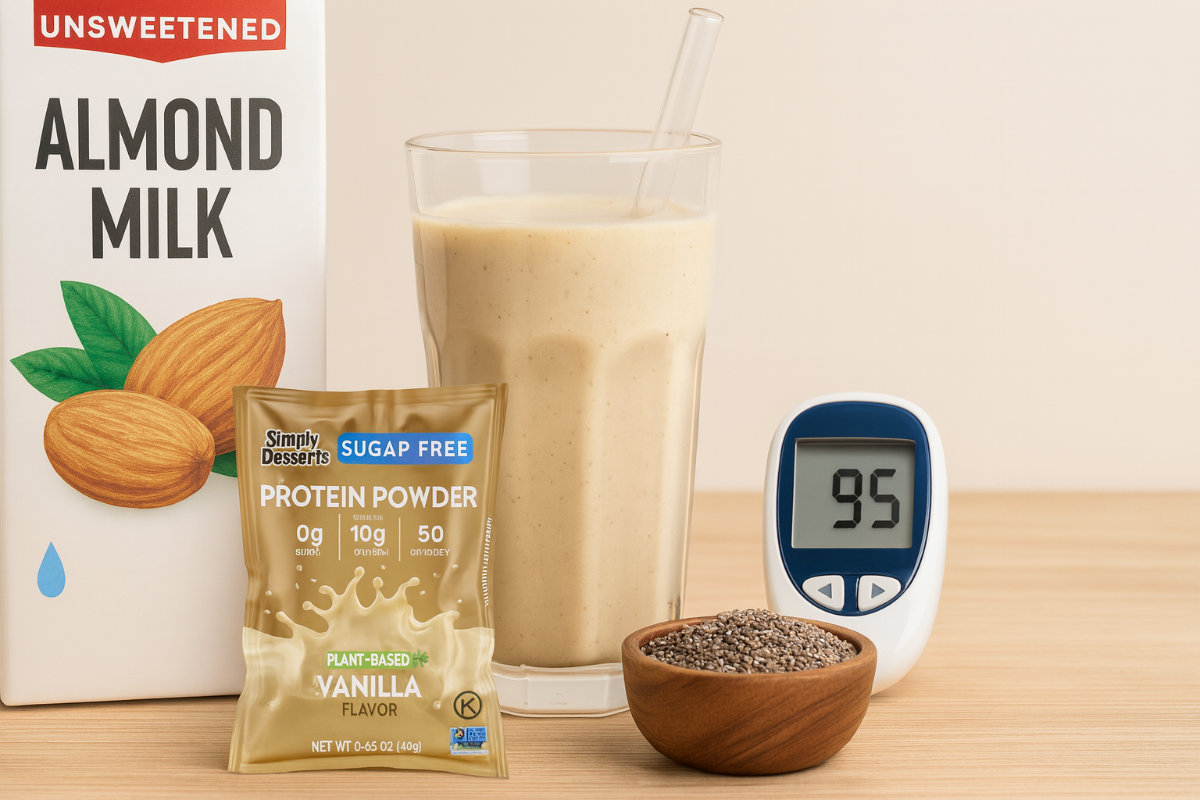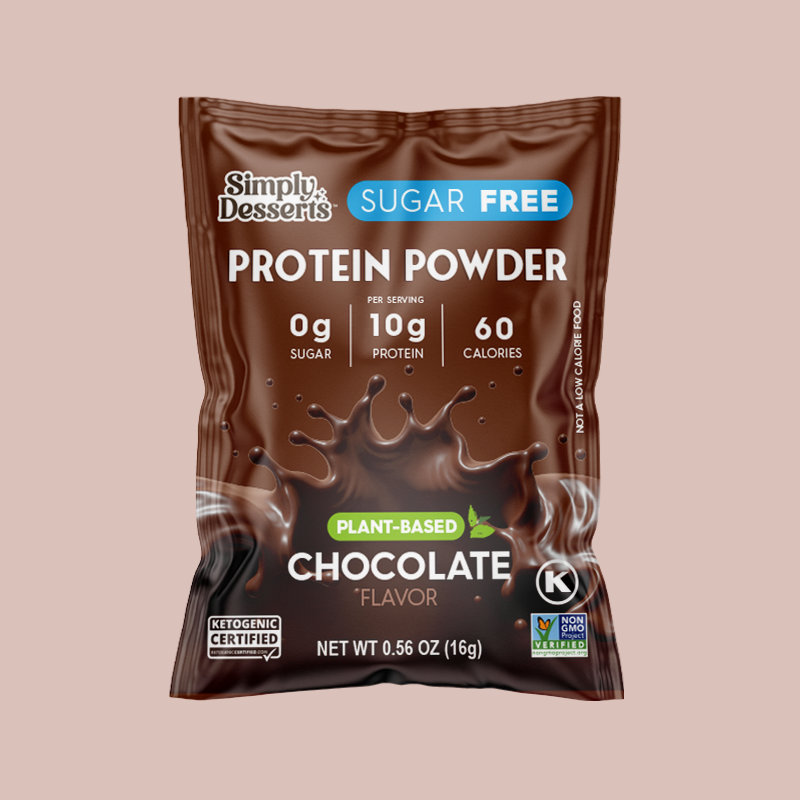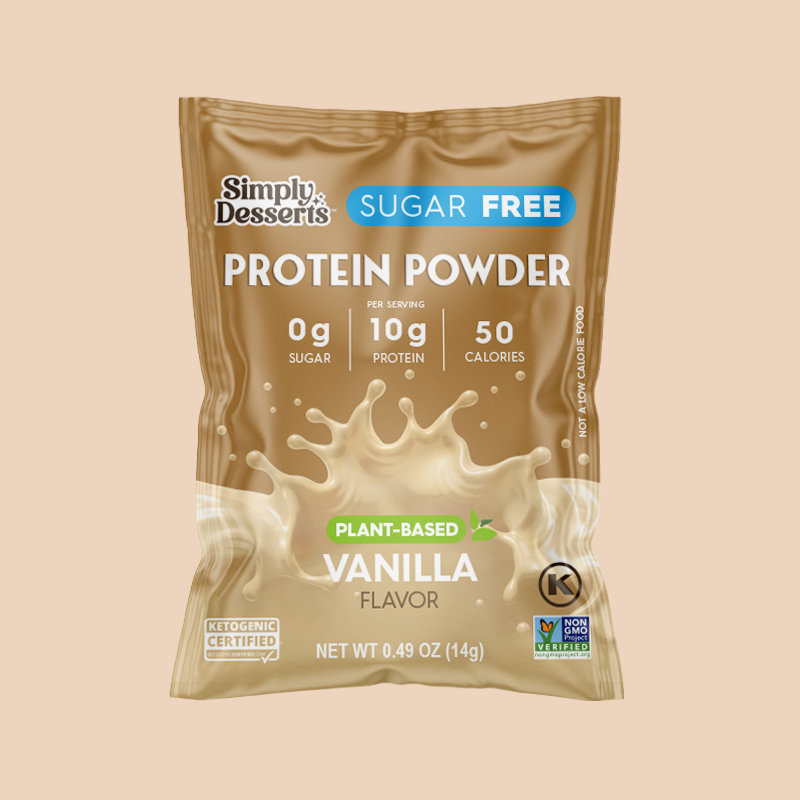
Pre-diabetes is a huge problem. Don’t let the little word “pre” fool you. According to the Center for Disease Control and Prevention, about 96 million American adults (that’s a mind-boggling 1 in 3) are currently prediabetic! Ask yourself, could that be you? And if so, what does it mean for your sweet tooth or that post-workout smoothie that you enjoy? Here’s how to choose protein powder for diabetics so you can keep shakes and desserts in your plan. Protein powders are a type of dietary supplement, which means they are regulated differently from regular food products and may not have the same level of FDA oversight. Do you have to say goodbye to desserts and creamy shakes for good? No! Also, prediabetics and diabetics can use protein powders. Continue reading View our recipes here.
What Are Protein Powders? (Introduction to Protein Powders)
Protein powders are dietary supplements designed to help you increase your daily protein intake in a convenient and versatile way. They are made by extracting protein from various sources, such as dairy (whey protein, casein), plants (pea protein, soy, rice, hemp), or even eggs. These powders are then processed and sometimes blended with other ingredients to create a product that can be easily mixed into shakes, smoothies, or recipes.
For people with diabetes or prediabetes, protein powders can play a key role in supporting muscle mass, managing body weight, and maintaining stable blood sugar levels. High quality protein is essential for building and repairing tissues, supporting immune function, and providing a feeling of fullness that can help control overall food intake. Whey protein isolate and plant based protein powders, such as pea protein, are popular choices because they offer a complete profile of essential amino acids and are generally low in carbohydrates and added sugars. Choosing high quality protein sources helps support muscle repair and satiety.
Not all protein supplements are created equal, so it’s important to read labels carefully. Look for products with minimal artificial ingredients, low saturated fat, and no added sugar. Choosing the right protein powder can help you meet your health goals, whether you’re looking to support a balanced diet, improve body composition, or enhance your diabetes management plan. If you’re unsure about how much protein you need or which protein sources are best for you, consulting a registered dietitian can help you create a meal plan tailored to your individual needs and health conditions.
Protein Powder for Diabetics
High-protein diets are associated with increased feelings of fullness, which can reduce overall calorie intake. Options like whey protein or plant-based blends can be included as part of a balanced plan. When dairy fits your diet, whey protein isolate offers fast absorption with minimal lactose.
For people with diabetes, a common guideline is ~0.8 grams of protein per kilogram of body weight for daily protein intake (individual needs vary).
Types of Protein Powders for Diabetes (Whey, Casein, Plant-Based)
People with diabetes and prediabetes commonly choose from three categories: whey, casein protein, and plant-based options. Whey is fast-absorbing and often used around meals or workouts; casein digests more slowly and can help with satiety; and plant proteins (like pea, soy, or blends) are a solid choice for those avoiding dairy while still aiming for a complete amino acid profile.
Whey Protein and Blood Sugar Management
The intake of whey protein can enhance the secretion of incretin hormones, which play a role in insulin secretion. Studies often use whey protein isolate to standardize dose and digestion.
Whey protein slows gastric emptying, which is a major mechanism for reducing postprandial blood glucose concentrations.
Consuming whey protein before meals can improve postprandial glycaemic response in people with type 2 diabetes.
Insulin Resistance: How Protein Fits In
For people dealing with insulin resistance, pairing protein with fiber and healthy fats can help slow digestion and temper post‑meal glucose rises as part of a broader nutrition plan.
Choosing low‑sugar options—such as plant‑based blends or whey protein isolate—can make it easier to hit protein goals without excess carbs, while working with your clinician to monitor insulin resistance and overall health.
Choosing the Right Protein Powder
Choosing high quality protein powders ensures they are minimally processed and free from synthetic additives. If you’re dairy‑free, a plant based protein powder with low carbs and no added sugars can work well.
Excessive protein intake can strain the kidneys, especially in individuals with pre-existing kidney conditions.
There is no ‘best’ amount of protein for blood glucose management or heart disease risk according to the American Diabetes Association. Checking carb content and sweeteners helps you manage blood sugar levels alongside your overall nutrition goals.
Prediabetics – Can Prediabetes Go Undetected?
You could have been living with undetected prediabetes for years; simply because you’ve not exhibited any symptoms yet, doesn’t mean it’s not lurking in the background.
If you’re overweight, over 45, have a family member with a history of type 2 diabetes, or you’re physically inactive, you could be at risk.
What Does Having Prediabetes Mean?
Prediabetes means that you have a higher blood sugar level than normal. It’s not enough to lead to a full-blown diabetes diagnosis, but it can be enough to increase your risk of suffering from a stroke, heart disease and type 2 diabetes.
Does Having Prediabetes Mean Low Or No-sugar?
Before you worry that having prediabetes confines you to a life without ever savoring a Delish dessert again…think again! As the world’s first keto-certified pudding brand, we are perfect for anyone following a prediabetic diet.
Now that we’ve added protein puddings to our range, it’s never been easier to enjoy a dessert without worrying about undetected insulin spikes. While these products can support managing diabetes by helping stabilize blood sugar, they are not intended to be used as a meal replacement or as the primary source of nutrition.
Can Protein Powders Be Diabetic-friendly?
Looking to add more protein to your puddings while still enjoying a plant-based, sugar-free meal that’s diabetic-friendly? Then you need to look out for a protein that is made from all-natural ingredients like pea protein isolate and fava bean protein which won’t cause any irritable or distressing digestive issues. Protein supplements can also be a useful addition to a diabetes management plan, supporting dietary strategies for metabolic health.
It is possible for diabetics to use protein powder and to also eat a diet rich in protein foods as long they opt for high-fiber options. High protein diets have been shown to support glycaemic control and weight loss in people with diabetes. When selecting protein powders and planning meals, it is important to consider the carbohydrate content and manage carbohydrate intake to help regulate blood sugar levels effectively.
Do Protein Shakes Spike Blood Sugar?
Protein shakes, when made with the right protein powder (e.g., whey protein isolate or plant-based options) and wholesome ingredients, generally do not cause spikes in blood sugar levels and are designed to minimize blood sugar spikes when paired with fiber and healthy fats. In fact, protein plays a stabilizing role in blood sugar management by slowing the absorption of carbohydrates and providing a steady source of energy. Unlike high-carbohydrate foods, protein shakes made with whey protein or plant based proteins can help keep blood glucose levels more consistent, which is especially important for people with diabetes.
Whey protein, in particular, has been shown to stimulate insulin secretion and improve insulin sensitivity, both of which are beneficial for managing blood glucose. However, it’s crucial to pay attention to the ingredients in your protein powder. Some products contain added sugars, artificial sweeteners, or high-fat additives, all of which can negatively impact blood sugar control and overall health. Opt for protein powders that are low in added sugars and artificial ingredients, and consider those that include digestive enzymes for better absorption. Pairing protein with fiber and fats can support healthy blood sugar levels.
Do Protein Shakes Cause Blood Sugar Spikes?
Whey protein is frequently studied for its effects on incretin hormones and insulin response. It can slow gastric emptying and, when consumed in the right context, contribute to steadier postprandial glucose—helping reduce the likelihood of blood sugar spikes after meals.
There are two main types of protein – one derived from animal products and the other from plant-based sources. As we know that a diet rich in too much animal protein can increase the risk of developing type 2 diabetes, plant-based protein sources, such as pea protein isolate and fav bean protein are an excellent option.
What If I Am Also Lactose Intolerant?
So many people are intolerant to the lactose found in many protein powders. That’s why we wanted to address these allergens and sensitivities in our protein range. It’s currently estimated that about 68% of the global population has lactose malabsorption!
While not everyone suffering from lactose malabsorption will experience digestive issues, again, as with prediabetes, surely prevention is better than cure? Especially when there are readily available products you can purchase that are super versatile and tasty too.
What you will find in our latest product range is highly concentrated dutch chocolate cocoa powder in our Keto Chocolate Protein Powder and delicious natural vanilla flavour in our Vanilla Keto Protein Powder.
We’ve also added sugar-free Stevia M extract, again making this the natural choice for the 1 in 3 Americans with prediabetes right now.
Our Ingredient Choice: Pea Protein Isolate
In the Simply Desserts protein range, we use Pea Protein Isolate as the primary protein source. It’s dairy-free, versatile in recipes, and fits well for people who prefer plant-based options.
How to Make a Diabetic-Friendly Protein Shake (Without Spikes)
- Base: Use unsweetened almond milk or another low-carb, plant-based milk.
- Protein: Choose a low-sugar powder (whey, casein, or plant-based), and match the serving to your goals.
- Add fiber: Chia seeds, flax, or psyllium can slow absorption.
- Healthy fats: A spoon of nut butter can help blunt rapid glucose rises.
- Watch sweeteners: Avoid added sugars; check labels for carbs per serving.
Recipe Idea: Try This Plant-based Protein Smoothie That’s Diabetic Friendly
Another winning combination from Simply Desserts superfan @klean.Kate, this smoothie is gluten-free, plant-based, sugar-free, and perfect for vegans, prediabetics and those among you who experience lactose malabsorption. Oh, and it tastes pretty darn delish too!
This smoothie can help maintain energy levels throughout the day by providing sustained nutritional support and helping to manage hunger.
All you need is a blender and the following ingredients, which can be adapted according to personal preference.
Ingredients
- 1 x packet Simply Desserts Vanilla Protein Powder
- 1 x cup unsweetened almond milk, plant-based oat milk or soya milk of choice
- 1 x pitted date
- 1 x cup frozen fruit of choice
- Optional: half cup Greek yogurt or cottage cheese (for extra protein, if not vegan)
- Optional: 1-2 tablespoons nut butters (such as almond or peanut butter) for added protein and healthy fats
Instructions
- Add all your ingredients to your blender
- Blitz till smooth and completely combined
- Pour into a glass or protein shaker if you’re on the go and enjoy!
It’s the perfect prediabetic, pre or post-workout protein shake!
Note: Non-vegans can add lean meats as a protein source in other meals to support a balanced diet. Whey proteins are also an option for those who tolerate dairy; they are rich in branched chain amino acids, which support muscle health and can help with insulin response.
Don’t forget to keep coming back to view our blog for more great recipes and guilt-free desserts all the family can enjoy. Plus, remember that the Simply Desserts diabetic-friendly range can also be picked up in all your favorite grocery stores, including Whole Foods, Sprouts, Kroger and Kroger Banner Stores – Ralphs etc. We’re adding more and more outlets and stockists every week!

